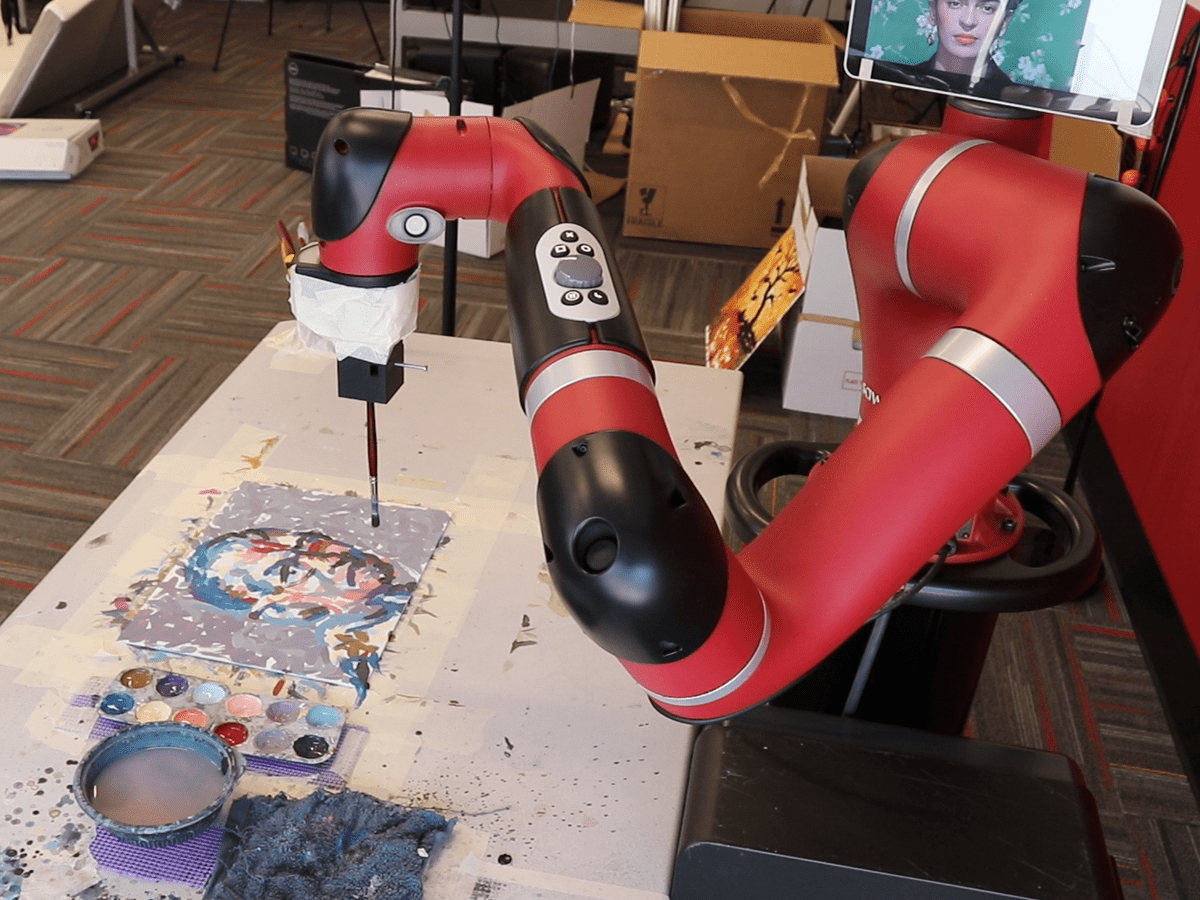“Exploring the Creative Potential of AI Robots: How Text-Based Prompts are Transforming Art with Automated Painting”
FRIDA, a collaborative robotics and art project at Carnegie Mellon University (Carnegie Mellon University)
Researchers have built an AI-powered robot capable of painting pictures from simple text prompts.
The FRIDA robot developed at the Robotics Institute of Carnegie Mellon University uses generative artificial intelligence similar to the viral chatbots ChatGPT and Dall-E 2.
Taking inspiration from other artworks or photographs, the robot can create its own unique artwork through user input, but goes a step further than these other systems by producing a physical artwork.
“FRIDA is a robot painting system, but FRIDA is not an artist,” says Peter Schaldenbrand, a doctoral student at the Institute for Robotics.
“FRIDA does not produce the ideas for communication. FRIDA is a system that an artist can work with. The artist can specify high-level goals for FRIDA and then execute them from FRIDA.
“There’s this one picture of a frog ballerina that I think turned out really nice. It’s really silly and fun, and I think the surprise of what FRIDA generated based on my input was really funny.”
FRIDA, which stands for Framework and Robotics Initiative for Developing Arts, uses a robotic arm with a paintbrush glued to it to create paintings on a canvas, while also using machine learning to assess the progress of his work.
His creations have been described by researchers as “impressionistic and whimsical,” with bold brushstrokes and an ability to “ripple” a mistake.
“People wonder if FRIDA will take artists’ jobs, but the main goal of the FRIDA project is just the opposite,” said Jean Oh, faculty member at the Robotics Institute.
“With FRIDA, we really want to encourage human creativity. For example, I personally wanted to be an artist. Now I can actually work with FRIDA to express my ideas in painting.”
The project, titled “FRIDA: A Collaborative Robot Painter with a Differentiable Real2Sim2Real Planning Environment,” is scheduled to be presented at the IEEE International Conference on Robotics and Automation 2023 in London in May.
Don’t miss interesting posts on Famousbio










